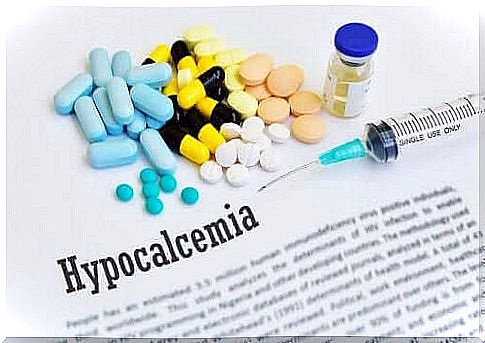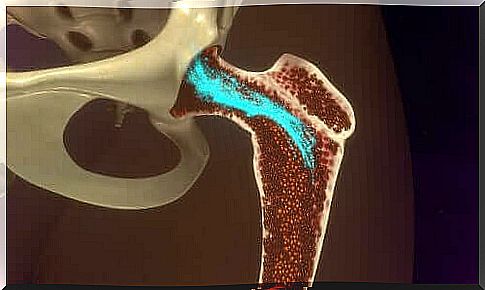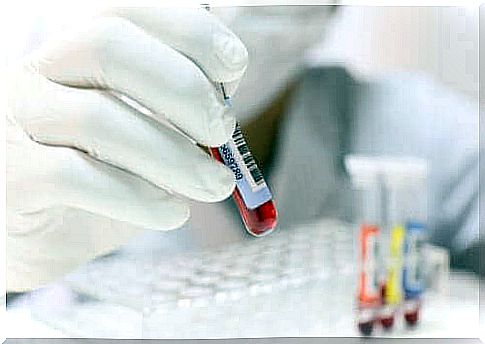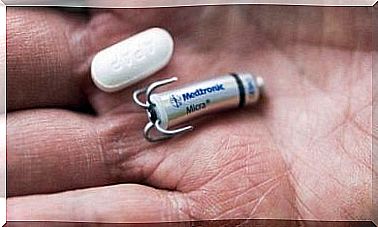Symptoms Of Hypocalcaemia And Treatment

Today we will tell you about the symptoms of hypocalcaemia and its possible treatments. If your levels of calcium in the blood are too low, then you may have symptoms of this disorder since hypocalcaemia is a common disease. The good news is, you can handle it.
Calcium is one of the essential minerals that your body needs to be in optimal condition. This mineral has two very important functions at intracellular and extracellular levels, as several studies point out.
- At an intracellular level, it is involved in several enzymatic reactions and is important for the transmission of nerve signals.
- At the same time, at an extracellular level, it is important for endocrine secretion, coagulation, and neuromuscular plaque.
It is very important to know these two levels because many of the symptoms of hypocalcaemia are often associated with them.
Let us here answer some important questions regarding this disease.
The symptoms of hypocalcaemia and its treatment

Hypocalcaemia typically occurs when there is a deficiency of vitamin D. Mostly it is the result of chronic kidney disease or some serious problems in the blood, such as leukemia.
In all these cases and many more, the primary organs that begin to degrade due to this lack of calcium in the blood will be the bones, intestines and kidneys.
Let’s look at some of the symptoms of this disease in detail:
- Increased excitability of the neuromuscular plaque. This includes painful muscle cramps, although they primarily affect the muscles in the limbs.
- Exhaustion and weakness. Patients are much more tired than usual. This may be due to diarrhea and sudden weight loss, another result of having this condition.
- Psychosis and anxiety. These two symptoms are quite common. Patients may begin to experience a change in their perception of reality, which is followed by serious anxiety attacks.
- Paresthesia. In addition to the seizures, some people may feel a tingling, numbness and burning sensation in various parts of the body. Sometimes you may also experience a sharp pain.
These are just some of the symptoms that can occur during hypocalcaemia. However, there are many others, such as arrhythmia and high blood pressure in the arteries, among others.
If your symptoms point to hypocalcaemia, seek the advice of a medical professional so that you can get a reliable diagnosis. Then you will be able to begin your treatment as soon as possible.
Treatment

A blood test is needed to diagnose a person who is showing signs of hypocalcaemia. That way, they will be able to figure out if they need to start a treatment. In addition, they will be able to determine the type of hypocalcemia that they are dealing with.
Acute hypocalcaemia
The symptoms of this type of hypocalcaemia are quite serious and the treatment should therefore be carried out immediately. The most common involves intravenous administration of the mineral, calcium gluconate.
Note that the treatment must be watched and controlled at all times while a person is receiving it. This is because even though it is necessary, this treatment can lead to cardiac arrhythmia.
Chronic hypocalcaemia
The second type of hypocalcaemia is different from the former.
In this case, a person has serious, regular problems stabilizing and balancing the levels of calcium in their blood. They have had to deal with this problem over an extended period of time.
For that reason, a person afflicted with the symptoms of chronic hypicalcaemia needs permanent control over it. One of the most common treatments consists of oral intake of calcium and vitamin D supplements.
This type of hypocalcemia is not as serious as the former. However, it requires follow-up to keep calcium levels stable.
These follow-ups take place weekly after a diagnosis. They will then be reduced to once a month and eventually every three months. It is very important that a person undergoing treatment for hypocalcaemia take all these controls as recommended by their doctor.
There is no risk of cardiac arrhythmia, but kidney stones can occur. The way to keep them away is by maintaining control over the amount of salt that a person diagnosed with hypocalcaemia ingests.
We hope this article allows you to recognize the symptoms of hypocalcaemia and its treatment. The condition is quite common, although few people know about it.









